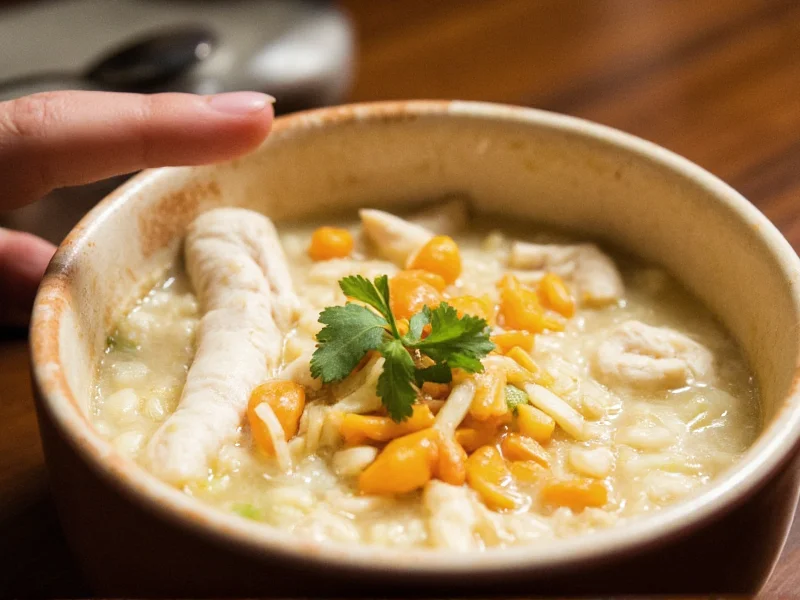When people search for “chicken and soup for the soul,” they often conflate two separate but culturally significant concepts. Understanding this distinction provides valuable clarity about both the famous book series and the therapeutic qualities of traditional chicken soup. This article explores the origins, cultural significance, and scientific basis behind both interpretations to help you understand why these concepts resonate so deeply with people seeking emotional comfort.
Understanding the Chicken Soup for the Soul Book Series
"Chicken Soup for the Soul" is not a culinary recipe but a massively successful book series first published in 1993 by Jack Canfield and Mark Victor Hansen. The series features short, inspirational stories contributed by ordinary people about overcoming challenges, finding hope, and experiencing personal growth. With over 250 million copies sold worldwide, the books have become cultural touchstones for emotional support during difficult times.
The title metaphorically suggests that just as chicken soup nourishes the body when sick, these stories nourish the spirit during emotional distress. Unlike actual chicken soup recipes, the book series contains no food preparation instructions but rather life lessons and uplifting narratives. Many readers turn to these books seeking emotional healing, making them a staple in waiting rooms, counseling offices, and personal libraries worldwide.
The Science Behind Chicken Soup as Emotional Comfort Food
While the book series uses “soup for the soul” metaphorically, there's growing scientific evidence that actual chicken soup may provide genuine emotional benefits. Research shows that comfort foods like chicken soup activate brain regions associated with reward and emotional regulation. The warmth, familiar flavors, and nostalgic associations trigger the release of serotonin and dopamine, neurotransmitters that improve mood and reduce stress.
Nutritionally, traditional chicken soup contains several components that support both physical and emotional health. The amino acid cysteine in chicken broth may reduce inflammation, while the steam from hot soup can improve mood by clearing nasal passages and enhancing oxygen flow to the brain. The ritual of preparing and consuming homemade soup also provides psychological benefits through mindful engagement and sensory comfort.
| Component | Physical Benefit | Emotional Benefit |
|---|---|---|
| Warm broth | Hydration, clears sinuses | Calms nervous system, promotes relaxation |
| Chicken protein | Provides essential amino acids | Supports neurotransmitter production |
| Vegetables (carrots, celery) | Vitamins and minerals | Nutrients that support brain health |
| Cooking ritual | N/A | Mindfulness practice, sense of accomplishment |
Traditional Chicken Soup Recipes with Emotional Benefits
Creating authentic chicken soup with potential emotional benefits involves more than just following a recipe—it's about understanding the therapeutic elements that make this dish special. Traditional Jewish penicillin, as chicken soup is sometimes called, typically includes chicken, vegetables, herbs, and long simmering times that extract maximum nutrients and flavor.
For those seeking emotional comfort through cooking, the preparation process itself offers therapeutic value. Chopping vegetables mindfully, monitoring the simmer, and inhaling the aromatic steam creates a multi-sensory experience that can reduce anxiety and promote presence. Many mental health professionals actually recommend therapeutic cooking as a mindfulness practice for managing stress and depression.
When Comfort Food Isn't Enough: Recognizing Emotional Needs
While both the "Chicken Soup for the Soul" books and actual chicken soup can provide temporary emotional relief, it's important to recognize when professional help is needed. Comfort foods and inspirational stories serve as complementary support but shouldn't replace therapy or medical treatment for serious emotional or mental health concerns.
The "chicken soup for the soul" concept works best as part of a holistic approach to emotional wellbeing. Pairing these comforting elements with regular exercise, quality sleep, social connection, and professional support when needed creates a more comprehensive strategy for maintaining mental health. Understanding the limitations of comfort food psychology helps prevent unrealistic expectations about their healing capabilities.
Creating Your Own Emotional Nourishment Practice
Whether you prefer metaphorical or literal interpretations of “soup for the soul,” developing a personalized practice can enhance your emotional resilience. For book lovers, creating a ritual around reading inspirational stories during challenging times can provide structure and hope. For culinary enthusiasts, preparing and sharing homemade chicken soup with loved ones combines nutritional benefits with social connection—a powerful combination for emotional health.
Consider keeping a “soul nourishment journal” where you document which approaches work best for your emotional wellbeing. This might include specific Chicken Soup for the Soul stories that resonate with you, your favorite chicken soup recipes, or other comfort practices that provide emotional sustenance during difficult periods.











 浙公网安备
33010002000092号
浙公网安备
33010002000092号 浙B2-20120091-4
浙B2-20120091-4